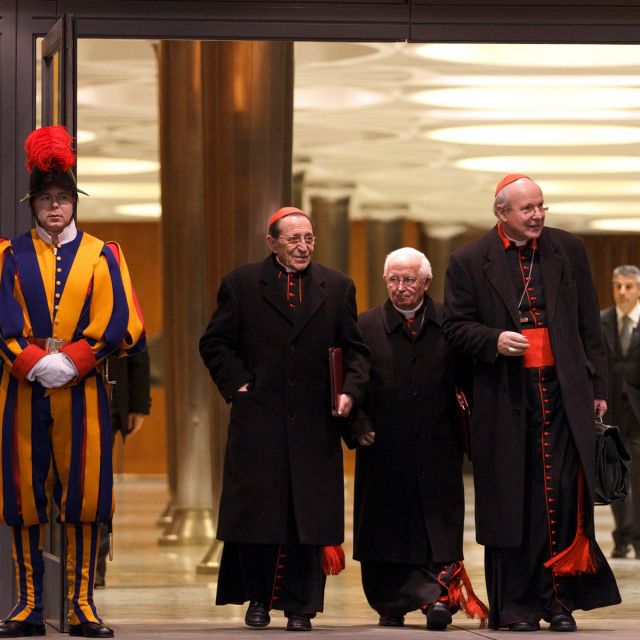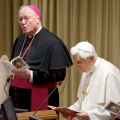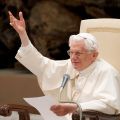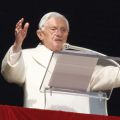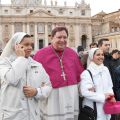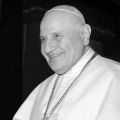Of cardinal importance: new princes of the church on their role
VATICAN CITY - Practically everyone knows two things about cardinals -- that they wear red hats and elect the Pope. But what other purpose do these men serve in the Catholic Church?
On the eve of the Feb. 18 consistory where Pope Benedict XVI was scheduled to expand the College of Cardinals by 22 new members, the three North Americans among them shared some thoughts on the meaning of their new role.
Cardinal-designate Dolan leads cardinals' reflection on evangelization
VATICAN CITY - Secularism has had an easy time spreading through many traditionally Christian cultures because so many Christians do not know their faith and do not grasp the truth it teaches, Cardinal-designate Timothy M. Dolan of New York told the College of Cardinals.
While the New York prelate did not downplay the challenges the church faces in reviving the faith of its members and bringing the Gospel to those who have never heard it, he delivered his assessment Feb. 17 with his characteristic smile and broad gestures, telling Pope Benedict XVI and the cardinals that evangelization requires joy and love.
Pope says no future without children, urges support for large families
VATICAN CITY - Pope Benedict XVI called on governments and communities to help large families, saying children represent hope and the well-being of every nation.
"There is no future without children," he said at the end of his general audience Feb. 15 in a greeting to members of an Italian association of large families.
"In today's social context, a family made up of many children constitutes a witness of faith, courage and optimism," he said.
Pope: Vocations are born from openness to the love of God
VATICAN CITY - Love of God nurtures love of neighbor, especially in people with vocations to the priesthood or religious life, said Pope Benedict XVI in his message for the World Day of Prayer for Vocations.
The papal message for the 49th World Day of Prayer for Vocations, which will be observed April 29, was released Feb. 13 at the Vatican.
Lent is time to help others spiritually, materially, pope says
VATICAN CITY - In his Lenten message, Pope Benedict XVI called on the faithful to be concerned for one another and "not to remain isolated and indifferent" to the fate others.
Materialism and a sense of self-sufficiency are obstacles to a Christian life of charity, the Pope said.
Instead of looking first to God and then to the well-being of others, people often have an attitude of "indifference and disinterest born of selfishness and masked as a respect for 'privacy.'"
Richer orders should share with poorer religious, says Vatican prefect
VATICAN CITY - Wealthier religious orders should share their resources with struggling religious communities, said the prefect of the Congregation for Institutes of Consecrated Life and Societies of Apostolic Life.
Cardinal-designate Joao Braz de Aviz said that while religious men and women live a life of poverty and possess nothing, their religious "institution doesn't always give the same witness."
"It's not that we are against holding assets or are saying the church cannot have all the things it needs," he said in an interview with the Vatican newspaper, L'Osservatore Romano, Feb. 2.
Strong bond with God is defining quality of religious life, pope says
VATICAN CITY - Strengthening one's relationship with God must be the highest priority and most defining quality of religious life, Pope Benedict XVI said.
Celebrating vespers with members of religious orders Feb. 2, the feast of the Presentation of the Lord and the World Day for Consecrated Life, the Pope said the day was a way of bringing greater attention to the witness of faith of religious men and women worldwide.
In his homily during the evening service in St. Peter's Basilica, Pope Benedict said the day was also an important occasion for religious to "renew your intentions and rekindle the feelings that inspire the giving of yourselves to God."
Pope to visit Mexico, Cuba March 23-28, meet leaders, Catholic faithful
VATICAN CITY - Pope Benedict XVI will meet with Cuban President Raul Castro, Mexican President Felipe Calderon and bishops and Catholics from the region when he visits Mexico and Cuba in late March.
He will also greet bishops of Latin America and the Caribbean as well as pray at the shrine of Our Lady of Charity of El Cobre in Cuba.
It will be his third visit to the Americas after the United States in 2008 and Brazil in 2007.
Confession: Celebration of mercy, not trial before prosecution
VATICAN CITY - Priests hearing confessions need to replace any negative or aggressive attitudes with meekness and mercy toward the penitent, said a Vatican expert on confession.
The sacrament of reconciliation "has led to a unilateral overemphasis on the accusation and listing of sins," said Bishop Gianfranco Girotti, regent of the Apostolic Penitentiary, a Vatican court that handles issues related to the sacrament of penance.
The end result is that "the thing that is absolutely central when listening to sin, that is, the blessed embrace of the merciful Father, is put on the backburner," he said.
Pope prays for peace, watches dove fly back into his apartment
VATICAN CITY - "Mamma mia," Pope Benedict XVI said as a dove flew over his head and back into his apartment Jan. 29 after he and two Italian school children released the bird as a symbol of peace.
The Pope and representatives of the Italian Catholic Action children's section release doves during the Sunday Angelus address in late January each year. And, almost every year, at least one of the birds flies back into the papal apartment.
Half a century after Vatican II, a year of faith and debate
VATICAN CITY - Fifty years ago this October, Blessed John XXIII and more than 2,500 bishops and heads of religious orders from around the world gathered in St. Peter's Basilica for the opening session of the Second Vatican Council.
Over the following three years, Vatican II would issue 16 major "pronouncements" on such fundamental questions as the authority of the church's hierarchy, the interpretation of Scripture, and the proper roles of clergy and laity. Those documents, and the deliberations that produced them, have transformed how the Catholic Church understands and presents itself within the context of modern secular culture and society.


